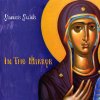Born in Chicago on October 10, 1950. Mr. Bogdanich graduated from the University of Wisconsin in 1975 with a degree in political science. He received a master's degree in journalism from Ohio State University in 1976.
.Before joining The Times in 2001, he was an investigative producer for "60 Minutes" on CBS and for ABC News. Previously, he worked as an investigative reporter for The Wall Street Journal in New York and Washington. He also worked for The Cleveland Press and The Plain Dealer.
As a producer for ABC News, Bogdanich and reporter John Martin became the first to break the important story that tobacco companies were manipulating the degree to which cigarettes pumped nicotine into smokers' bloodstreams. In addition to making Big Tobacco look even more corrupt than was previously believed, this made itmore difficult for Big Tobacco to say that it wasn't in the drug business-a claim it was using to avoid regulation by the FDA.
Bogdanich won the Pulitzer Prize in 1988 for his articles in The Wall Street Journal on substandard medical laboratories. He has also won three George Polk Awards and an Overseas Press Club Award.





